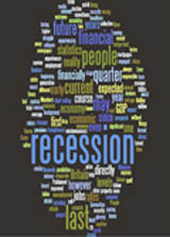The changing face of motherhood in Norway
Introduction
Norway is ranked first in the Save the Children State of the World‘s Mothers Report 2011, meaning that it is regarded as the best place on earth to be a mother, based on factors such as welfare support, maternity leave, childcare provision, and gender equality. This focus on improving conditions for mothers is not a particularly new development: in many ways Norway has led the drive for women‘s rights and for state provision for the family among European countries since its inception as a nation-state in 1905. The experience of Norwegian motherhood is, therefore, held up as something of an ideal to which other countries should aspire if they are to improve their own provision for mothers and families.
This does not mean, however, that Norway is completely free of issues and concerns when it comes to contemporary motherhood. There are those who argue that the experience of motherhood in Norway is significantly undermined by the fact that the welfare system is still based on an idea of mothers as »care-givers‘ and of fathers as ’workers‘ or ’breadwinners‘. This basic distinction means that at a fundamental level, experiences of motherhood in Norway may not be all that different from those elsewhere in the European context. So perhaps for those who incorporate professional life into their definition of ’modern motherhood‘, Norway is less perfect than some statistics would have us believe. On the other hand, for most mothers it is the practicalities of managing day-to-day life that are of primary concern, and in this respect it is clear that Norway is outstripping many of its European counterparts in terms of state provision for mothers and families. It is these practical aspects of modern motherhood that must be balanced against other competing aspects of women‘s lives if we are to understand if Norwegian motherhood is, in fact, as ideal as the statistics suggest.
Click here to download the report in pdf format.
The Changing Face of Motherhood research was commissioned by Procter & Gamble (P&G)






